10 start with G start with G
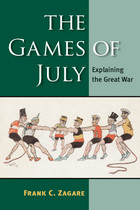
"Frank C. Zagare combines a deep command of historical scholarship and the sophisticated skills of an applied game theorist to develop and test a theory of why deterrence failed, catastrophically, in July 1914. . . . Zagare concludes with sage advice on how to avoid even more cataclysmic breakdowns in a nuclear world."
---Steven J. Brams, New York University
"Zagare's deft study of the origins of the First World War using his perfect deterrence theory uncovers new insights into that signal event and shows the value of formal theory applied to historical events. A must-read for those interested in security studies."
---James D. Morrow, University of Michigan
"Through an exemplary combination of formal theory, careful qualitative analysis, and lucid prose, The Games of July delivers important and interesting answers to key questions concerning the international political causes of World War I. Its well-formed narratives and its sustained engagement with leading works in IR and diplomatic history . . . make it a rewarding read for security scholars in general and a useful teaching tool for international security courses."
---Timothy W. Crawford, Boston College
Taking advantage of recent advances in game theory and the latest historiography, Frank C. Zagare offers a new, provocative interpretation of the events that led to the outbreak of World War I. He analyzes key events from Bismarck's surprising decision in 1879 to enter into a strategic alliance with Austria-Hungary to the escalation that culminated in a full-scale global war. Zagare concludes that, while the war was most certainly unintended, it was in no sense accidental or inevitable.
The Games of July serves not only as an analytical narrative but also as a work of theoretical assessment. Standard realist and liberal explanations of the Great War are evaluated along with a collection of game-theoretic models known as perfect deterrence theory.
Frank C. Zagare is UB Distinguished Professor of Political Science at the State University of New York at Buffalo.
Cover illustration: Satirical Italian postcard from World War I. Used with permission from The University of North Carolina at Chapel Hill Libraries.
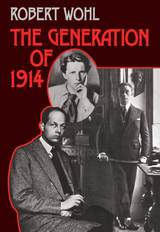
The generation of 1914 holds a special place in memory, affection, and myth. In this irresistible and moving book, Robert Wohl rescues it from the shadows of legend and brings it fully into the realm of understanding. He tells the story of the young men--the middle class elite of five European countries, France, Germany, England, Spain, and Italy, to recreate the generational consciousness that united them as well as the unique national experience that made them different.
These were men born at the end of the nineteenth century when the world of reason was disintegrating into a world of irrationality. They were destined to rule but their lives were interrupted by the greatest of wars, leaving them searching for identity and historical continuity. Wohl recaptures this search through novels, poems, autobiographies, memoirs, sociological treatises, philosophical essays, university lectures, political speeches, conversations when recorded, letters, personal notebooks, and newspaper articles. His book is a brilliant study of European mentalities, both collective and individual.
Probing behind ideas to find the experience that inspired them, Wohl illuminates in unexpected ways the origins of World War I and its impact on its participants. His exploration of the consciousness of generational unity and the power of the generational bond enables him to place in a novel context the spread of pessimism and despair, the waning of liberal and humanitarian values, the rise of Communist and Fascist movements, and the sudden eruption of violence in Europe's progressive countries between the two world wars.
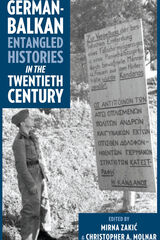

Why did ordinary Germans vote for Hitler? In this dramatically plotted book, organized around crucial turning points in 1914, 1918, and 1933, Peter Fritzsche explains why the Nazis were so popular and what was behind the political choice made by the German people.
Rejecting the view that Germans voted for the Nazis simply because they hated the Jews, or had been humiliated in World War I, or had been ruined by the Great Depression, Fritzsche makes the controversial argument that Nazism was part of a larger process of democratization and political invigoration that began with the outbreak of World War I.
The twenty-year period beginning in 1914 was characterized by the steady advance of a broad populist revolution that was animated by war, drew strength from the Revolution of 1918, menaced the Weimar Republic, and finally culminated in the rise of the Nazis. Better than anyone else, the Nazis twisted together ideas from the political Left and Right, crossing nationalism with social reform, anti-Semitism with democracy, fear of the future with hope for a new beginning. This radical rebelliousness destroyed old authoritarian structures as much as it attacked liberal principles.
The outcome of this dramatic social revolution was a surprisingly popular regime that drew on public support to realize its horrible racial goals. Within a generation, Germans had grown increasingly self-reliant and sovereign, while intensely nationalistic and chauvinistic. They had recast the nation, but put it on the road to war and genocide.
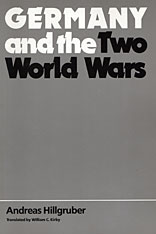

Adolf Hitler, writing in Mein Kampf, was scathing in his condemnation of German propaganda in the First World War, declaring that Germany had failed to recognize propaganda as a weapon of the first order. This despite the fact that propaganda had been regarded, arguably for the first time, as an intrinsic part of the war effort.
David Welch has written the first book to fully examine German society — politics, propaganda, public opinion, and total war — in the Great War. Drawing on a wide range of sources — from posters, newspapers, journals, film, parliamentary debates, police and military reports, and private papers — Welch argues that the moral collapse of Germany was due less to the failure to disseminate propaganda than to the inability of the military authorities and the Kaiser to reinforce this propaganda, and to acknowledge the importance of public opinion in forging an effective link between leadership and the people.
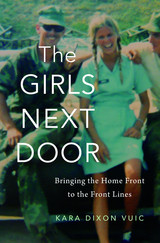
The story of the intrepid young women who volunteered to help and entertain American servicemen fighting overseas, from World War I through the wars in Afghanistan and Iraq.
The emotional toll of war can be as debilitating to soldiers as hunger, disease, and injury. Beginning in World War I, in an effort to boost soldiers’ morale and remind them of the stakes of victory, the American military formalized a recreation program that sent respectable young women and famous entertainers overseas.
Kara Dixon Vuic builds her narrative around the young women from across the United States, many of whom had never traveled far from home, who volunteered to serve in one of the nation’s most brutal work environments. From the “Lassies” in France and mini-skirted coeds in Vietnam to Marlene Dietrich and Marilyn Monroe, Vuic provides a fascinating glimpse into wartime gender roles and the tensions that continue to complicate American women’s involvement in the military arena. The recreation-program volunteers heightened the passions of troops but also domesticated everyday life on the bases. Their presence mobilized support for the war back home, while exporting American culture abroad. Carefully recruited and selected as symbols of conventional femininity, these adventurous young women saw in the theater of war a bridge between public service and private ambition.
This story of the women who talked and listened, danced and sang, adds an intimate chapter to the history of war and its ties to life in peacetime.
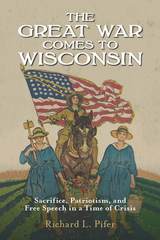
Instead of a comprehensive history of the battlefield, this book captures the homefront experience: the political debates over war policy, the worry over loved ones fighting overseas, the countless everyday sacrifices, and the impact of a wartime hysteria that drove dissent underground. It also includes the voices of soldiers from Wisconsin’s famed 32nd Division, through extensively quoted letters and newspaper accounts. Immerse yourself in the Wisconsin experience during World War I—a conflict that demonstrated America’s great capacity for sacrifice and generosity, but also for prejudice, intolerance, and injustice.
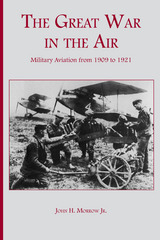
"For the general reader as well as the specialist, Morrow's history of the development and significance of airpower during WWI will be considered definitive. He compares the military, technological, and industrial aspects of the air services of the major powers--France, Germany, England, Italy, Austria-Hungary, and the United States--and reveals how, by means of superior production (particularly French engine manufacture), the Allies prevailed in the air war."--Publishers Weekly
"Morrow's encyclopedic examination of aviation's part in World War I concentrates on aircraft engine and airframe production, but the emotional content of contemporary accounts rises to the surface to put a human face on the brutal use of an infant technology. . . . a serious yet readable history of this vital part of the conflict, meant for any reader."--Library Journal
"A comprehensive study of the totality of the air war in its military, political, industrial, and cultural aspects distinguish this book from other treatments of military aviation during this period. . . . Morrow's efforts have yielded new insights into the evolution of military aviation and corrected previous oversights. The author's attention to developments in production and logistics, as well as events at the front, provide the most complete understanding of the development of air power and its role in the Great War."--American Historical Review
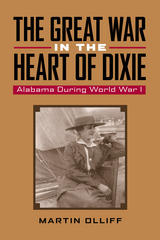
READERS
Browse our collection.
PUBLISHERS
See BiblioVault's publisher services.
STUDENT SERVICES
Files for college accessibility offices.
UChicago Accessibility Resources
home | accessibility | search | about | contact us
BiblioVault ® 2001 - 2024
The University of Chicago Press









